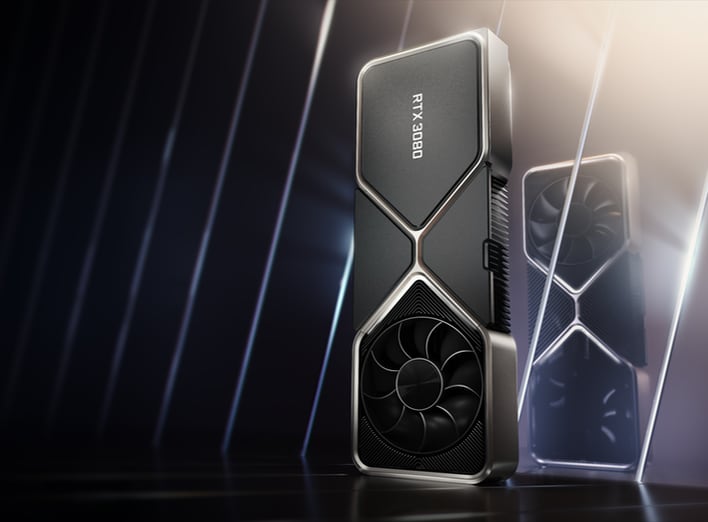NVIDIA Officially Goes All-In On GeForce RTX 3080, 3070, 3060 Ti Lite Hash Rate Cards

While the cryptocurrency limiter was first introduced on the GeForce RTX 3060, the new LHR series will extend to the GeForce RTX 3080, GeForce RTX 3070, and GeForce RTX 3060 Ti. All these new LHR cards will have software/hardware controls implemented to slash the Ethereum hash rate in half compared to previous revisions.
As NVIDIA explains, this change only applies to GeForce RTX 30 Series cards produced from this point forward and has no bearing on cards already in the channel (if you could actually find them anyway). Customers can spot these new cards once available thanks to Lite Hash Rate or LHR branding on manufacturers/retailer product listings and on the retail box itself, so there is no confusion between GPU revisions (as we’re already seen with Gigabyte).
NVIDIA toots its own horn a bit, talking about how the incredible capabilities of the GeForce RTX 30 Series are the reason for its popularity. “Because NVIDIA GPUs are programmable, users regularly discover new applications for them, from weather simulation and gene sequencing to deep learning and robotics. Mining cryptocurrency is one of them,” the company wrote in a blog post. It’s that last usage case that has caused the most consternation among gamers.
“We believe this additional step will get more GeForce cards at better prices into the hands of gamers everywhere,” NVIDIA continued. However, it remains to be seen if this will help improve the supply of GeForce RTX 30 Series cards available to gamers on the market or if it will do anything to drive down prices that are currently 2x to 3x over MSRP. This remains an untenable solution for enthusiasts, and there doesn’t appear to be any [immediate] end in sight.

